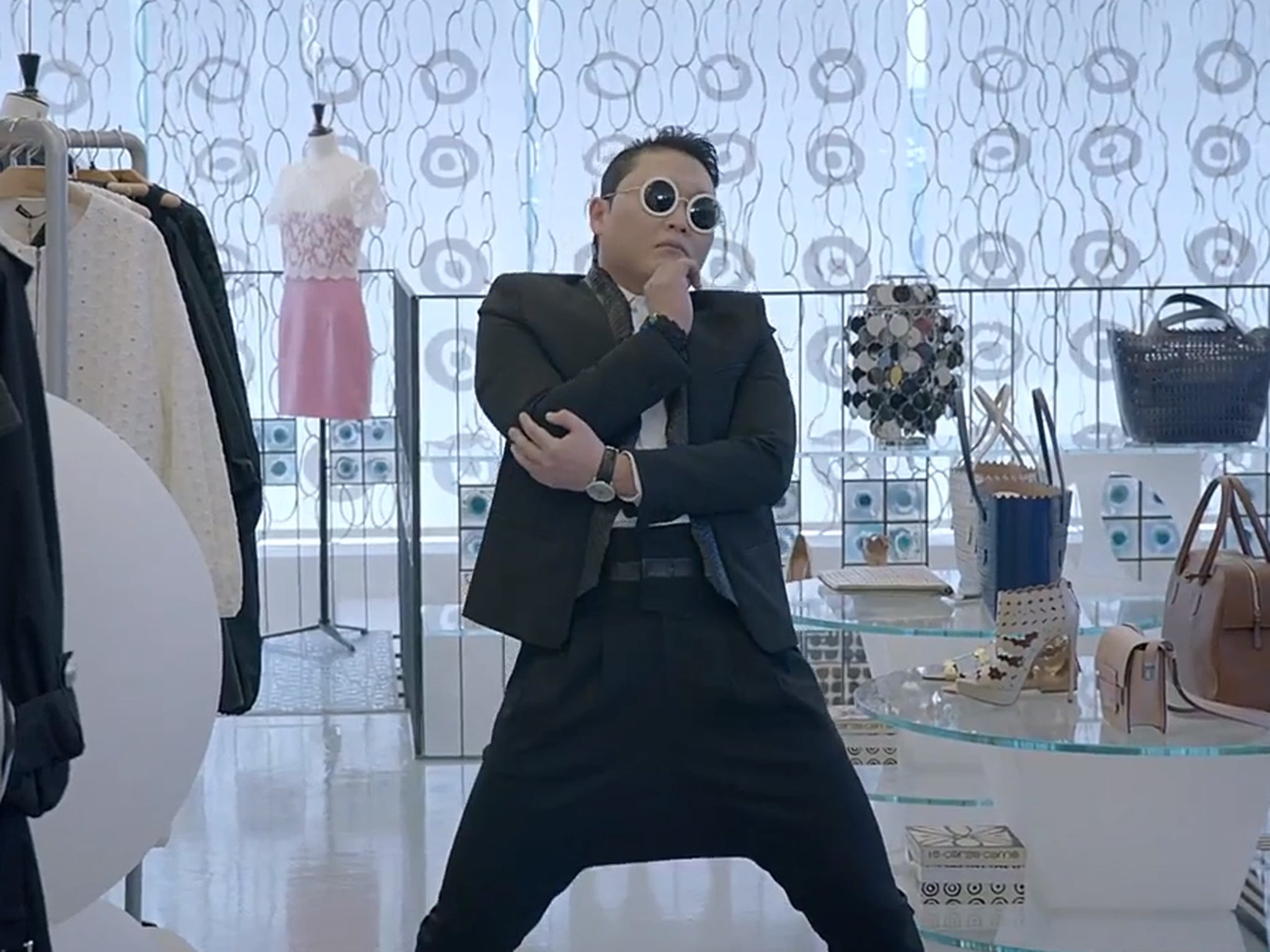Miley Cyrus' Wrecking Ball helps Vevo conquer MTV in video views battle
Cyrus' video set a Vevo record attracting 19.3 million views in 24 hours

Your support helps us to tell the story
From reproductive rights to climate change to Big Tech, The Independent is on the ground when the story is developing. Whether it's investigating the financials of Elon Musk's pro-Trump PAC or producing our latest documentary, 'The A Word', which shines a light on the American women fighting for reproductive rights, we know how important it is to parse out the facts from the messaging.
At such a critical moment in US history, we need reporters on the ground. Your donation allows us to keep sending journalists to speak to both sides of the story.
The Independent is trusted by Americans across the entire political spectrum. And unlike many other quality news outlets, we choose not to lock Americans out of our reporting and analysis with paywalls. We believe quality journalism should be available to everyone, paid for by those who can afford it.
Your support makes all the difference.When Miley Cyrus released a new video of the starlet writhing naked on a wrecking ball, the most delighted viewers were the music and technology giants behind Vevo, the web platform which has outsmarted MTV and sparked a revival of the pop video.
The clip for Cyrus’s "Wrecking Ball" single, in which the singer dispenses with her clothes and licks a hammer, set a record for Vevo, attracting 19.3 million views in the 24 hours after it premiered. The figure had soared to 70 million by Friday.
Founded in 2009, with the backing of traditional rivals Universal Music and Sony Music Entertainment, Vevo has racked up 44 billion views over the past year and describes itself as the “world’s leading all-premium music video and entertainment platform.”
With 250 million users a month, Vevo’s numbers dwarf Spotify, the music streaming service, which claims around 25 million listeners.
Last month, Vevo recorded 609 million views, according to ComScore, crushing nearest rival MTV, which was responsible for 261 million.
With record sales in decline, Vevo was created by the music industry to secure new revenue streams from the huge demand to watch videos for free on laptops and now mobile devices.
Vevo works in partnership with YouTube, syndicating videos to the site and offering high-end advertisers the chance to sell their wares around the clips viewed by millions. Vevo also powers the music videos watched on artists’ Facebook pages.
One Direction first took off in the US after Vevo promoted the band as a breakthrough “lift” artist. More than 50 per cent of Vevo views are now from mobile devices.
Nic Jones, Vevo’s Senior Vice President, International, said: “People wanted to find high-quality, versions of, say, Rihanna’s latest video but it wasn’t easy to do that through a Google search. Vevo was created to make those videos accessible on any platform. Videos now aren’t a marketing tool to sell CDs, they connect artists to fans and make money for musicians and their labels.”
Enjoy unlimited access to 100 million ad-free songs and podcasts with Amazon Music
Sign up now for a 4 month free trial (3 months for non-Prime members)
Enjoy unlimited access to 100 million ad-free songs and podcasts with Amazon Music
Sign up now for a 4 month free trial (3 months for non-Prime members)
Last month Google, owners of YouTube, bought a 7 per cent stake in Vevo, valuing the company, whose investors include Abu Dhabi Media, at $650 million.
Vevo, which hopes to add the Warner Music catalogue to its database of 75,000 videos, says it has paid out more than $200 million in royalties.
Now Vevo is challenging MTV, which became a global phenomenon on the back of the early 80s pop video explosion, on its own turf. Vevo will create a new channel of 24-hour original programming available via Apple TV set-top boxes and Samsung television sets. Vevo programmes include “Lyric Lines”, a show about using song lyrics by stars such as Justin Bieber to pick up a romantic interest.

The pop video as an art form had been in decline, reflected by MTV’s shift to reality programming. But with new stars such as Psy, created entirely by web video views and a potential audience running to one billion, budgets for videos which “cut through” are increasing.
Mr Jones said: “In the early days of video you’d see a band playing or the artist singing a song. Now you see creative clips which tell a story. When Lady Gaga’s ARTPOP album drops there will probably be a video for every song, not just a couple of singles. Advertisers want to be associated with that.”
Inevitably it is the most salacious clips, like Cyrus’s writhings, which attract the most hits. YouTube pulled the unedited version of Robin Thicke’s "Blurred Lines" video, featuring semi-naked models gyrating but Vevo ran the original alongside a “clean” version.
Mr Jones said: “We are part of the parental advisory scheme but we don’t choose to censor an artist’s content. Viewers actually chose to watch the ‘clean’ Thicke video by 176 million to 40 million views so not everyone is after titillation.”
Mr Jones added: “Right now female artists are blossoming in popularity and they are presenting themselves in a particular way. But music goes in cycles and we’ve a strong feeling that guitar groups are going to come back.”
Join our commenting forum
Join thought-provoking conversations, follow other Independent readers and see their replies
Comments